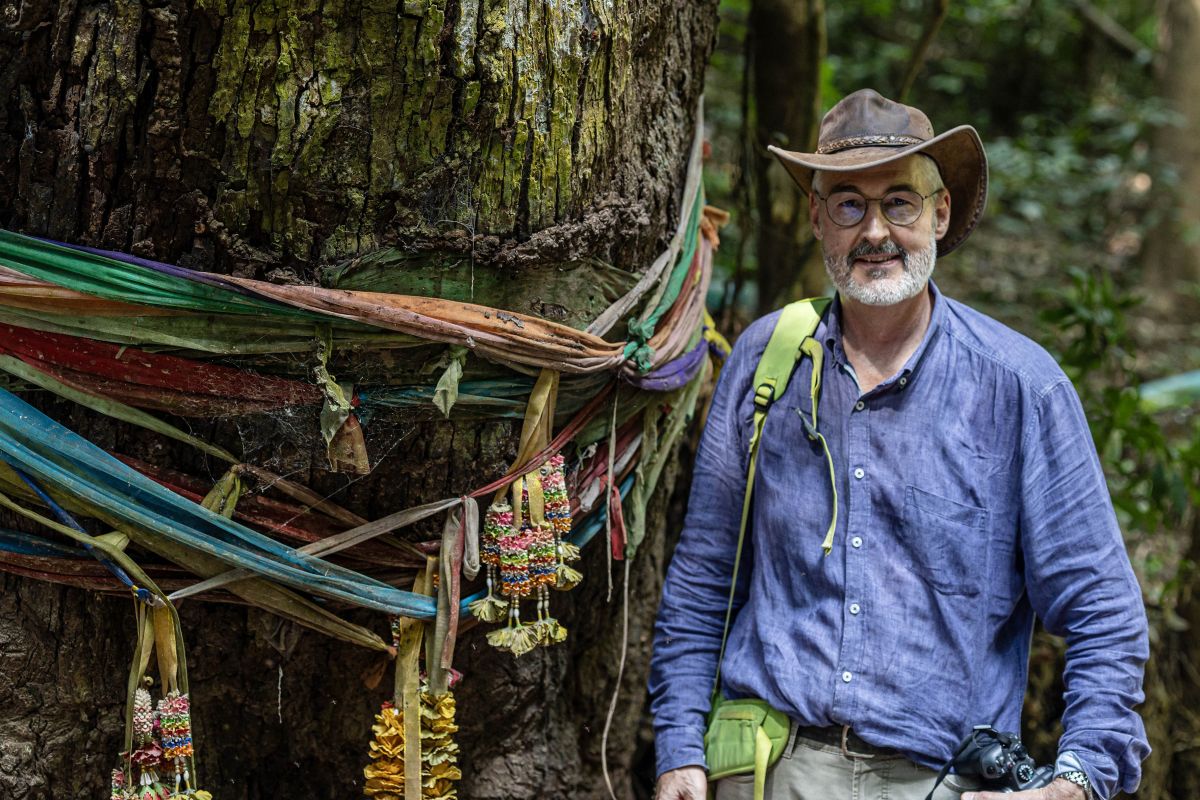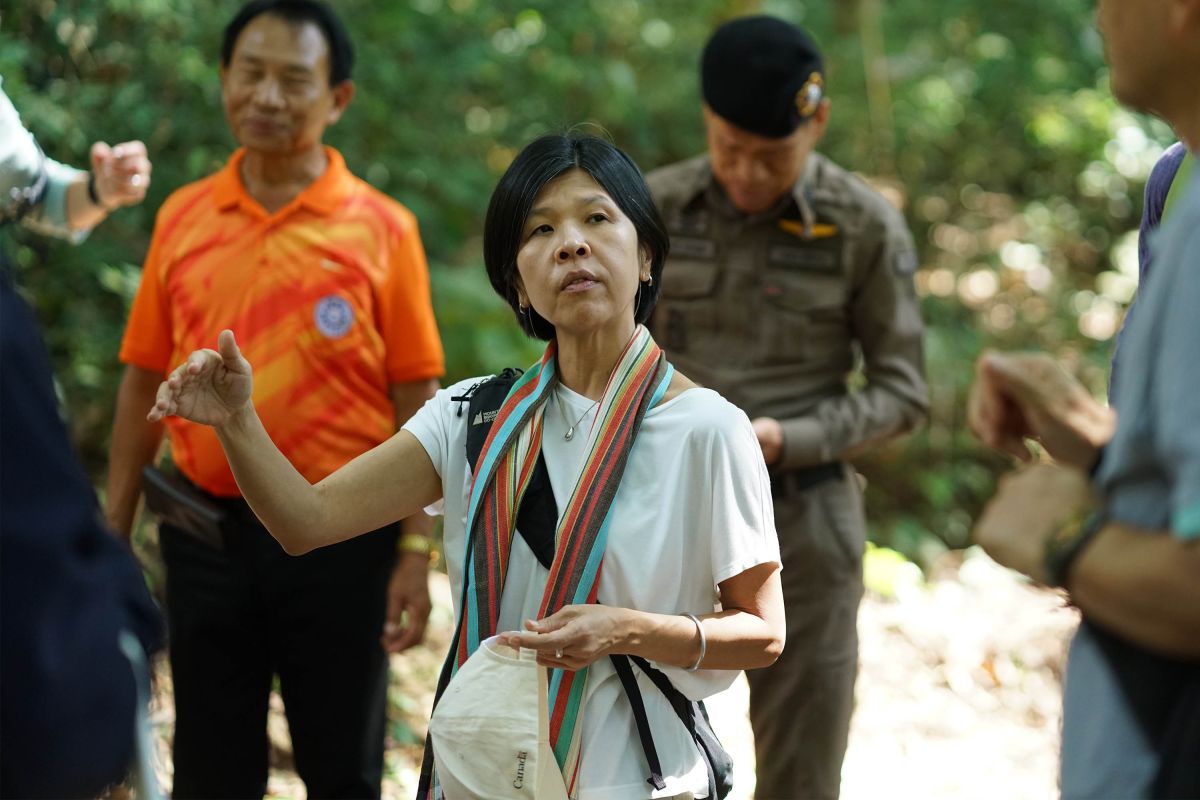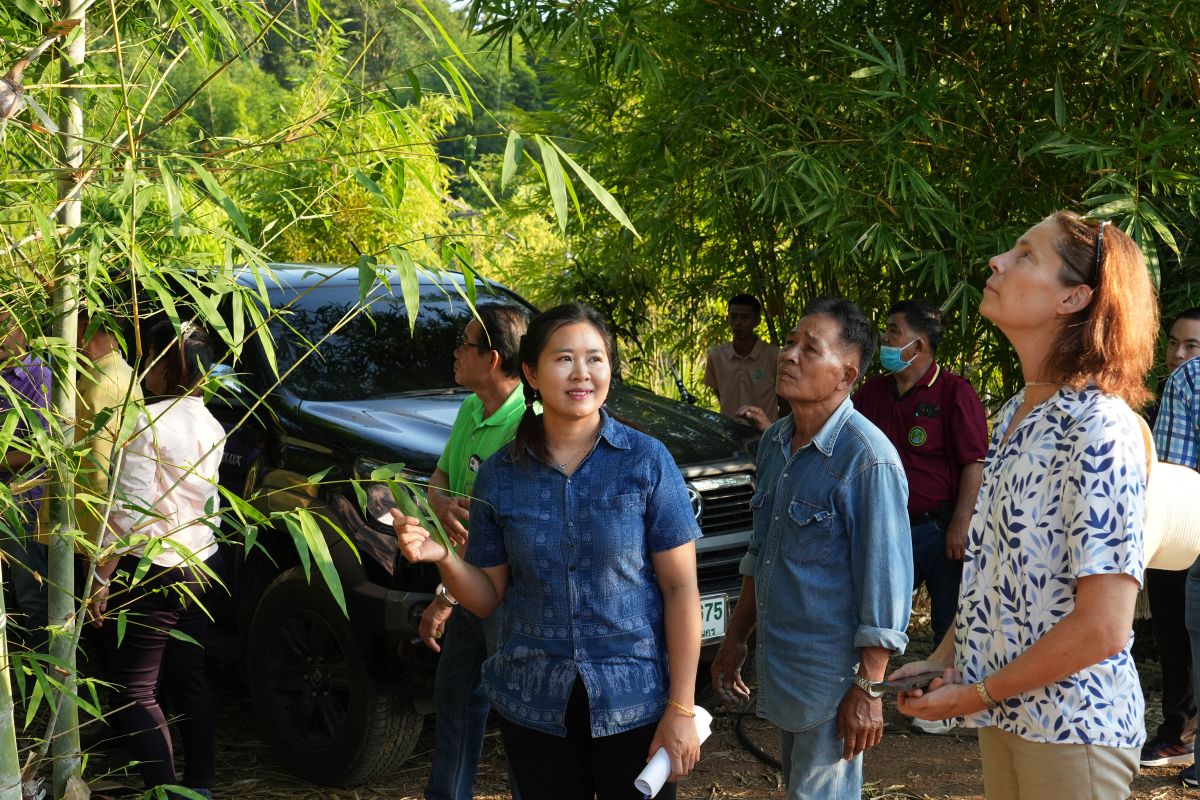Ambassadors engage with community-led forest management at Ngao Model Forest, Thailand

On 14 November 2024, three ambassadors to Thailand visited the Ngao Model Forest in the north of the country. HE Ms Anna Hammargren, Ambassador of Sweden; HE Ms Ping Kitnikone, Ambassador of Canada; and HE Mr Pedro Zwahlen, Ambassador of Switzerland travelled to Ngao to see how communities and organizations are working together to protect and manage its forest landscape. The visit was facilitated by RECOFTC and the Ngao Model Forest Association (NMFA).
The NMFA – a body set up in 2005 when the Ngao Model Forest joined the Regional Model Forest Network-Asia (RMFN-Asia) – developed the landscape management strategy for Ngao with support from RECOFTC. The Ngao Model Forest, one of eight in Asia, features a rich landscape of mixed evergreen and deciduous forests, teak plantations, national parks and 58 community-managed forests.
The ambassadors’ visit began with a tour of the Ban Kun Heng Watershed Conservation Area. Most of the people in the area are Mien, an ethnic group that traditionally practised rotational farming in the deep forests located in the watershed’s catchment area. This was negatively impacting the watershed.
Around 30 years ago, after a consultation and negotiation process, the community relocated to a new village downstream. Since then, they have been working closely with government agencies to recover the forest ecosystem and implement rules and regulations that promote forest conservation. This collaborative restoration effort has improved local water supply in the catchment area.
"The Ngao Model Forest fully demonstrates the importance of community participation in fostering a sustainable development model that leverages RECOFTC’s support to establish a strong local partnership,” said HE Ms Kitnikone. “The model offers valuable lessons for communities and regions facing similar environmental and socio-economic challenges.”
A memorable moment during the ambassadors’ visit was when the group came across a local tree that had been “ordained”. An “ordained tree” is one which has been ceremonially wrapped in coloured pieces of fabric by monks to protect it from logging.

The next stop was Ban Pong Community Forest, where a group of predominantly women volunteers has worked over the past two decades to transform 23.5 hectares of abandoned farmland into a thriving community forest. The ambassadors learned about the community’s effective fire prevention practices, which have kept the forest free from wildfires since 2007.
Their success stems from strong local awareness and practical solutions, including the construction of more than 100 check dams that help increase water retention in the forest soil. “The Ban Pong fire management initiative highlights the positive influence of gender on environmental protection efforts,” said HE Ms Kitnikone. “I am glad to see how their knowledge is being recognized and adopted by the surrounding communities."

The group then visited the Ban Prao Bamboo Learning Center, where the ambassadors met local farmers Pradit and his daughter Pao, who transitioned from monocrop maize farming to integrated bamboo farming 10 years ago. Bamboo has proven more profitable than maize, as it can be sold in various forms. Bamboo also has more market opportunities and does not have high input costs. However, it can be difficult for many farmers to make the transition to bamboo, as the initial investment can be high and it can take up to four years to earn a return. For local farmers making this transition or thinking about doing so, the Bamboo Learning Center has become a vital resource.

The ambassadors’ visit highlighted the importance of strong partnerships, meaningful collaboration and shared learning in advancing sustainable forest landscape management. The visit underscored how community-driven approaches, supported by international partnerships, are key to achieving long-term sustainability in forest landscapes across the region.
###
RECOFTC’s work is made possible with the support of the Swiss Agency for Development and Cooperation and the Government of Sweden.

